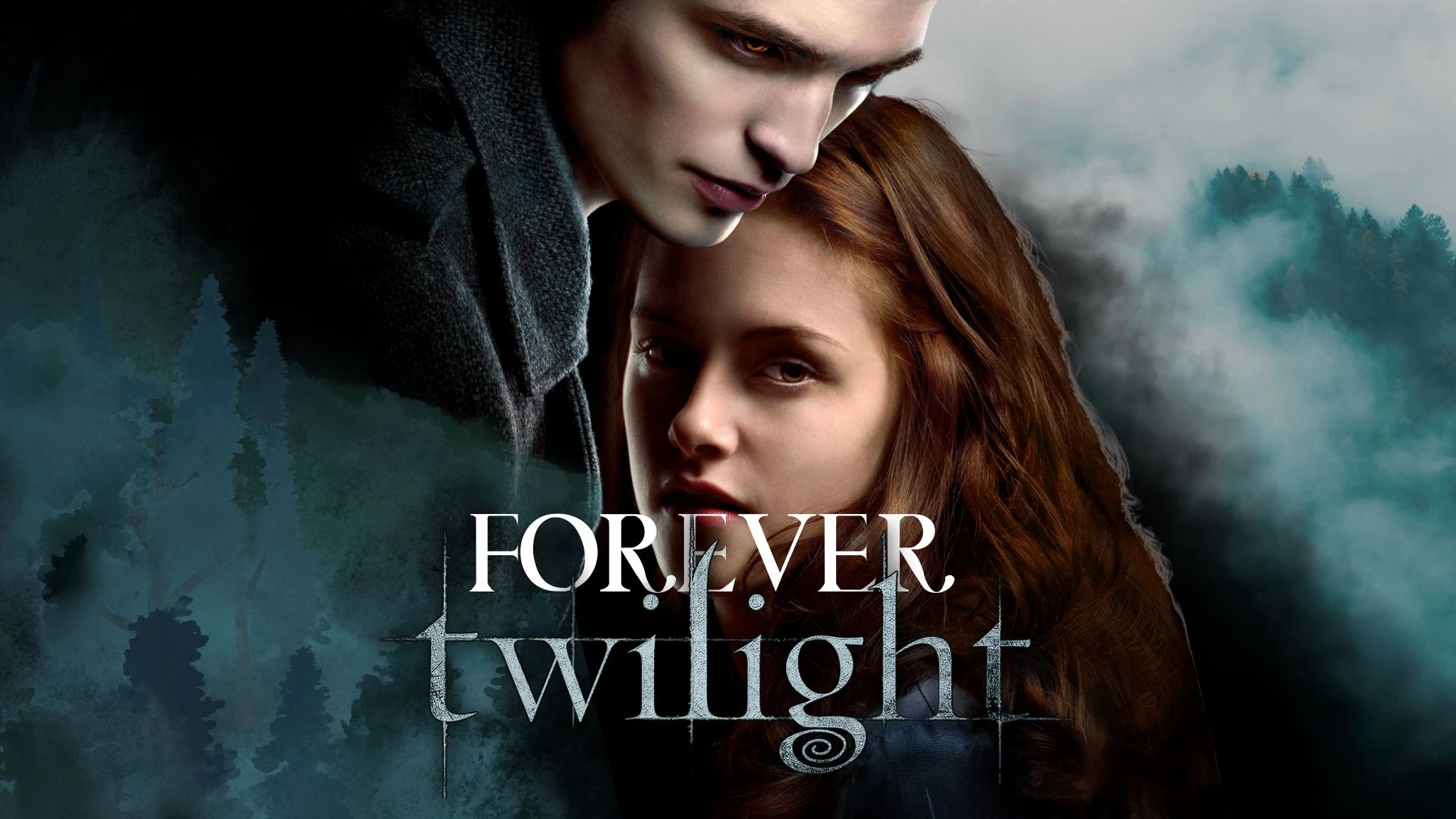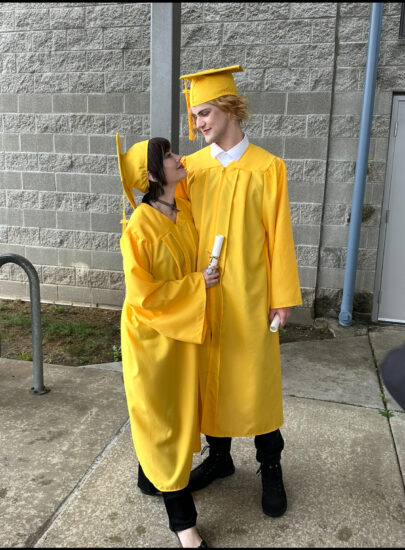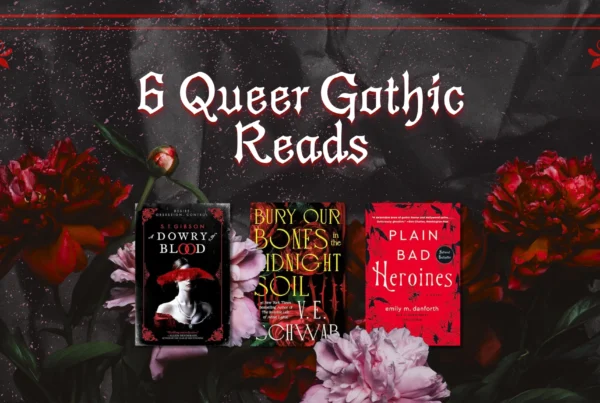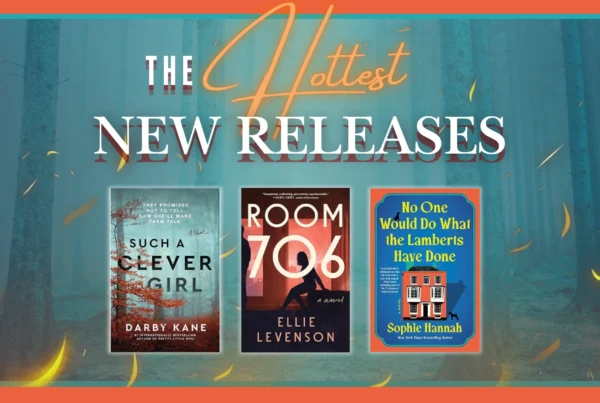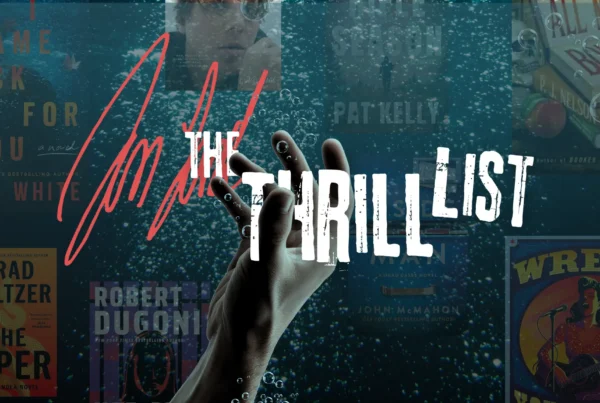Every year since 2015, hundreds of people descend upon the tiny town of Forks, Washington, population 3,433 (as of 2024), for a festival called Forever Twilight in Forks that celebrates the legacy of Stephenie Meyer’s 2005 novel Twilight and its sequels.
This year marks the 20th anniversary of Twilight’s publication, which was the impetus for me to finally make the trek to Bella Swan’s hometown and experience this fan festival firsthand.
I am no stranger to the Twilight fandom space; I’ve been a fan since first reading the novels in 2008, have been making videos dissecting Twilight for almost 5 years, and recently published a book covering the good, bad and ugly of The Twilight Saga. You’d think that at this point I’d be impervious to any Twilight-related sentimentality, but celebrating the 20th anniversary of a book that’s altered me irrevocably, amongst thousands of other fans who feel the same, was one of the most meaningful experiences of my life.
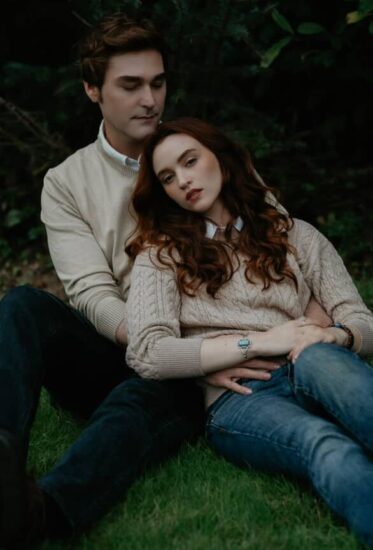
@justbellaswan and @alanmitchellastrology, taken by Noelle Uranga
A Book That Completely Changed the Game
After 20 years, it’s both astonishing that thousands of people would want to meet up in the woods to extoll their love for Bella Swan, Edward Cullen and Jacob Black, and, now having experienced it, entirely inevitable. It’s astonishing because the novel is, on its face, extremely unassuming: an average, human girl meets an extraordinary vampire and they fall in love despite his desire to eat her.
The novels that spun off from Twilight, including New Moon, Eclipse and Breaking Dawn, broaden the scope of Meyer’s world, introducing werewolves, love triangles and demon babies, but at its heart, Twilight is very much a simple coming of age story about two teenagers (insert Bella and Edward or Bella and Jacob depending on your “team” affiliation) who desperately want to be together.
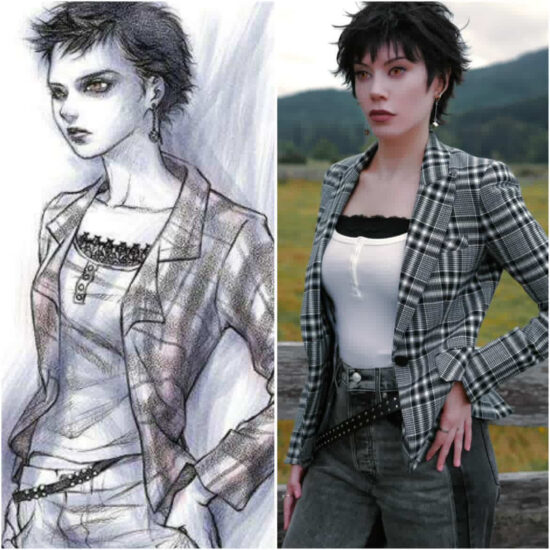
The Twilight Illustrated Guide and @mary.alice.brandon, taken by Dakota LeBeau
When I first read the book, what it represented to me, beyond the love story, was an escape from the mundanity that often comes with being a human being. Bella learns, through her vampire boyfriend and her werewolf best friend, that there is a whole world beyond the one into which she doesn’t fit, and that she is special in this new world and in the eyes of these extraordinary creatures.
It’s this escapism, this feeling of coming home, that fans associate with Twilight, that makes the fervor with which fans still approach this media seem inevitable to me. It’s a feeling that’s become so well-known that the term “Hoa Hoa Hoa season,” a reference to Blue Foundation’s song “Eyes on Fire,” which appears on Twilight’s film soundtrack, is now internet slang for Fall, for cold weather, rain and the woods.
Twilight fans remain so nostalgic for the atmosphere that the books and films evoke, for what life might be like amongst Bella and her supernatural friends in rainy, cold Forks, that we’ve renamed the weather after this feeling and forced the general population to agree.
Why We Love (and Hate) Twilight
Is it any wonder, then, that this year’s Forever Twilight in Forks Festival saw its largest attendance to date? In recent years, both the books and films have seen a huge resurgence in popularity. This is largely due to Meyer publishing Midnight Sun, a retelling of Twilight from Edward’s perspective, smack in the middle of the COVID lockdown, and Netflix streaming all of the films for the first time in 2021.
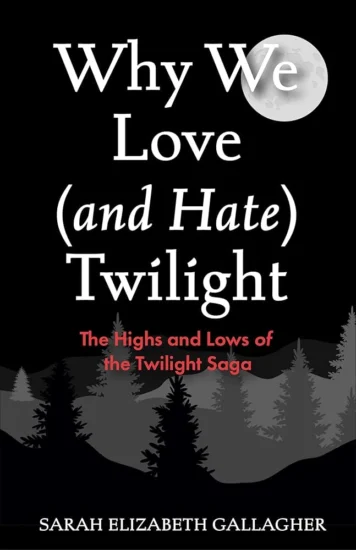 Original fans were re-exposed to the material and able to analyze it with a critical eye that the first Twilight frenzy often lacked, and a huge influx of new fans were drawn to the books and films because of what they do so well and because of what they get so wrong.
Original fans were re-exposed to the material and able to analyze it with a critical eye that the first Twilight frenzy often lacked, and a huge influx of new fans were drawn to the books and films because of what they do so well and because of what they get so wrong.
What looked like a perfect love story to many fans in 2005 was suddenly exposed as often toxic; fans also began to question the racism implicit in basing the story’s werewolves on a very real Native American tribe and giving one of Edward’s brothers a backstory that glorifies being a Confederate soldier.
These issues, instead of making fans less invested, have made fans more invested in trying to dissect the source material and square how something that they love so much can, at times, be so deeply problematic. It’s given way to a fandom that understands that to be critical of a piece of literature is to love it, that to deem it worthy of criticism is to deem it worthy of being called art.
Celebrating 20 Years — and a Thousand More
Having recently spent four days with these fans, I can confidently say that we’re just getting started in terms of finding new ways to honor and love Twilight. A large part of the festival involves a troupe of cosplayers called The Olympic Coven (@theolympiccoven).
Each day involved not only very fun parties with different themes where we’d get to hang out with some of the actors from the films, but also recreations of scenes from the books and films by extraordinary cosplayers. Some of these recreations included the beloved blood typing scene from Twilight and the confrontation between The Volturi and The Cullens that happens in Eclipse.
I’m 44 years old and what most people would consider to be an adult, but watching my very favorite fictional characters live out scenes from my favorite books transformed something inside of me, and I know that I wasn’t the only person who felt this way. It was not uncommon to see people moved to tears during various parts of the week, and there was not a hint of judgment from anybody in attendance.
This was, in fact, the least judgmental crowd of people that I’ve ever had the pleasure of being around. I know that this is, in part, because the original fans were judged incredibly harshly for loving something that was deemed so stupid, trivial and frivolous.
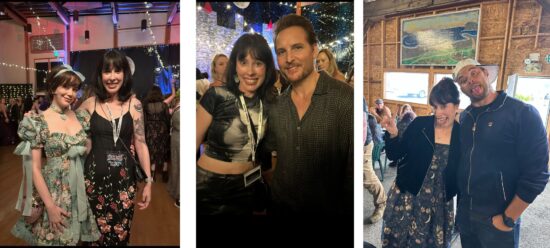
@sarahelizabeth_talks with @mary.alice.brandon (left), Peter Facinelli (middle), and Kellan Lutz (right)
As I watched Stephenie Meyer give a Q&A wherein she expressed her own amazement at the continued enthusiasm for Twilight, I felt so proud to be part of a fandom that has loved something so relentlessly, in the face of such shame, until it came all the way around to being kind of cool.
At the end of the festival, it’s tradition for everybody to link arms and sing along to Christina Perry’s “A Thousand Years,” the song featured in the end credits of Breaking Dawn: Part 2.
As I participated in this, my heart aching with love for this story and these people, I knew that we would never tire of loving Twilight for all that is good about it (and hating all of the bad). To badly paraphrase Christina Perry: We’ve loved Twilight for 20 years, we’ll love it for a thousand more.
